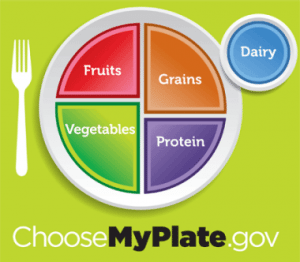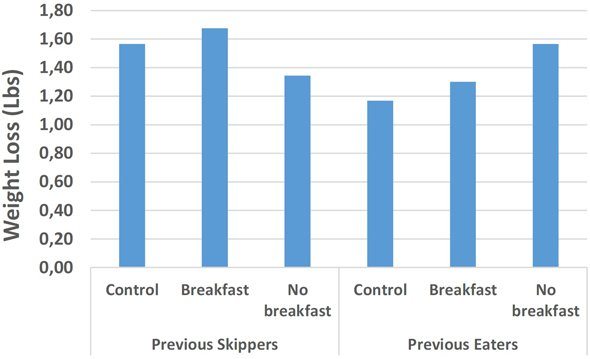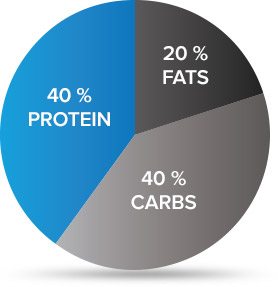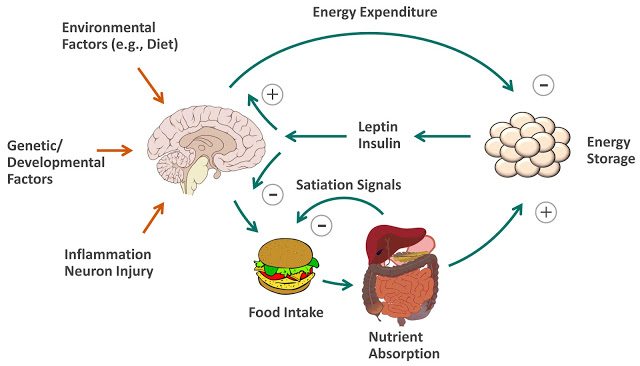When it comes to weight loss, there’s a mountain of information to absorb.
Most advice comes from national government guidelines, which are designed for the average healthy person.
But what if you’re not the average person?
Generalised health recommendations don’t always apply to those with medical conditions… Especially an underactive thyroid.
This article looks at 7 popular weight loss tips and why they don’t apply to those with hypothyroidism.
1. Eat Less, Move More

For decades the general advice to overweight individuals has been to “eat less and move more”.
However, weight loss (and gain) is not that simple.
The human body has many biological systems that regulate fat storage. These complex systems involve numerous hormones and brain centres that regulate how much we eat and how much energy we expend (1).
Source: Stephan Guyenet. Click to enlarge.
One can argue the influence of hormones on weight management is even greater in cases of hypothyroidism; thyroid hormones are a key regulator of energy expenditure (how the body uses calories).
Of course, it’s still the individual’s responsibility to address their weight issue. But advice to simply cut calories and do more exercise is unhelpful and short-sighted.
Summary: Weight loss is far more complex than the “eat less, move more” advice implies. Hormones are a key factor, which is why hypothyroidism is so influential on weight control.
2. Eat Plenty of Grain-Based Foods
The current US dietary guidelines encourage a large portion of your diet to come from whole-grain bread, cereal and other grain-based foods.

However, grain based foods may not be the best choice for those with autoimmune conditions, such as Hashimoto’s hypothyroidism.
The main protein in wheat and grain foods – gluten – may potentially aggravate the thyroid in those who are sensitive. There is also a notable overlap in those with celiac disease, an autoimmune condition that limits an individual’s ability to digest gluten (2).
Additionally, a component in gluten appears to influence the main mechanism that regulates intestinal permeability, often referred to as “Leaky Gut”. Evidence is in its early stages, but it’s likely harmful in those who are sensitive.
As a precaution it makes sense to limit the amount of cereals, flour and bread (including wholegrain) in your diet.
Gluten-containing foods don’t contain any unique nutrients that you can’t get from alternate foods sources anyway.
Summary: Wheat and grains contain gluten, which may aggravate the thyroid in those who are sensitive.
3. Always Eat Breakfast

Breakfast is the most important meal of the day.
At least, that’s what we’ve always been told.
The assumption was that missing breakfast causes you to eat more later in the day, but it’s not based on any evidence (3, 4).
Now there are well-designed studies showing breakfast is not all that important for adults, especially those wanting to lose weight.
In a 116-week clinical trial of 309 men and women, subjects were randomly assigned to one of three groups:
- Control: Given no advice about breakfast.
- Breakfast: Advised to eat breakfast before 10 AM each day.
- No breakfast: Advised to eat nothing before 11 AM each day.
Results showed that all subjects followed the instructions, yet there was no difference in weight loss between groups.
This graph shows the weight loss (lbs) in each group, split into two parts depending on the subjects’ breakfast habits before the study (5).

Any differences in weight between groups were very small (statistically insignificant) and inconsistent.
For hypothyroidism patients who prefer to take their thyroid medication in the morning, they must delay breakfast at least 1 hour in order to take it on an empty stomach.
In many instances it makes more sense to miss breakfast and make lunch your first meal.
Summary: Studies consistently show that missing breakfast does not cause you to eat more and gain weight. It may be preferable for those who take thyroid medication in the morning.
4. Eat Frequent Small Meals

It’s also not true that eating multiple small meals through the day makes you eat less overall or boosts metabolism.
The evidence overwhelmingly shows that eating eating 5 or more smaller meals vs 2-3 main meals per day makes no difference to your weight (6, 7, 8).
Frequent meals can be important for certain medical conditions (such as type 2 diabetes on medication), but it offers no advantages for weight loss (9).
Summary: The number of meals you eat per day does not influence metabolism or weight loss.
5. Do High-Intensity Exercise Regularly

Low thyroid hormone has a huge effect on energy levels.
That’s why the number 1 symptom of unmanaged hypothyroidism is chronic fatigue (10).
This leaves you feeling physically unable to do even one intense workout per week, let alone 3 or 4. It doesn’t matter how motivated you are because the problem is actually at a hormonal level.
This means advice to regularly engage in cardio exercise – particularly high-intensity workouts – is destined to fail.
Although cardio exercise is important for virtually all aspects of health (including hormone sensitivity), studies indicate it’s not critical for weight loss (11, 12).
Brisk walking several times per week is adequate, and regularly lifting weights (or bodyweight exercises) is an equally great alternative if mobility is an issue.
Summary: Hypothyroidism can cause extreme fatigue, which makes high-intensity exercise near impossible.
6. Choose “Diet” and Low-Fat Products

What we eat can be split into 3 general parts or segments:
- Protein
- Fat
- Carbs (includes sugar).
These are collectively known as macronutrients. Reducing one automatically means an increase in another.
When manufacturers remove fat from a product, it gets replaced with sugar so that it still tastes good. That’s why low-fat or “diet” products almost always have higher amounts of sugar (carbs).
While carbs are NOT uniquely fattening – with unrefined carbs perfectly fine in a healthy person’s diet – they should not be the majority of a weight loss diet.
Studies show high protein and high fat foods (to a lesser extent) are more satiating than high-carb foods. This means you feel full for longer and eat less calories overall (13, 14).
There also appears to be strong benefits of low-carb eating patterns for those with metabolic health issues like pre-diabetes and type 2 diabetes.
Summary: Low-fat products tend to be higher in sugar, which is not ideal for weight loss or related metabolic health issues.
7. Weight Loss Supplements Can Fast-Track Results

The weight loss supplement industry is ruthless.
There are thousands of products that claim to boost weight loss and make the entire process easier. But they’re rarely useful when studied, if at all.
The main reason some may notice a benefit is because of the placebo effect. The desire and hope that a supplement will help can often make you think it’s working, even though it’s not.
With rare exceptions, weight loss supplements simply don’t work for the average person. And they certainly won’t work for someone with hypothyroidism.
Unfortunately, there are no shortcuts to weight loss that lasts. The good news is you can lose weight successfully, but you just need to approach it from a new angle.

